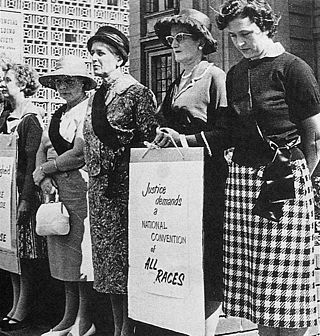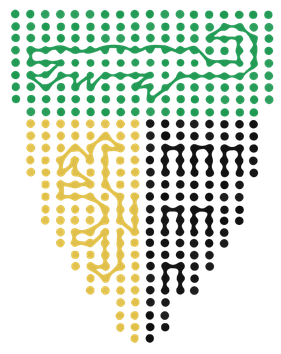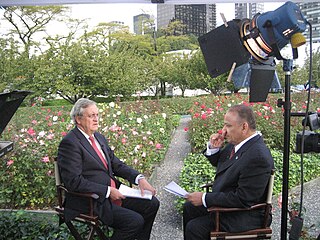
Freedom of information is freedom of a person or people to publish and consume information. Access to information is the ability for an individual to seek, receive and impart information effectively. This sometimes includes "scientific, indigenous, and traditional knowledge; freedom of information, building of open knowledge resources, including open Internet and open standards, and open access and availability of data; preservation of digital heritage; respect for cultural and linguistic diversity, such as fostering access to local content in accessible languages; quality education for all, including lifelong and e-learning; diffusion of new media and information literacy and skills, and social inclusion online, including addressing inequalities based on skills, education, gender, age, race, ethnicity, and accessibility by those with disabilities; and the development of connectivity and affordable ICTs, including mobile, the Internet, and broadband infrastructures".

JurisPedia is a wiki-based online encyclopedia of academic law in many languages, currently available in Arabic, Chinese, English, French, German, Spanish and Dutch. It was started in October 2004, inspired in part by Wikipedia and the Enciclopedia Libre. JurisPedia runs on the MediaWiki software, but it is not a Wikimedia Foundation project.

Earthlife Africa is a South African environmental and anti-nuclear organisation founded in August 1988, in Johannesburg. Initially conceived of as a South African version of Greenpeace, the group began by playing a radical, anti-apartheid, activist role. ELA is arguably now more of a reformist lobby or pressure group. Considered by some to be a key voice in the emerging environmental justice movement, Earthlife Africa has been criticised for being too radical, and by others for "working with traditional conservation movements" in furthering the environmental struggle.

The Black Sash is a South African human rights organisation. It was founded in Johannesburg in 1955 as a non-violent resistance organisation for liberal white women.
The Free Access to Law Movement (FALM) is the international movement and organization devoted to providing free online access to legal information such as case law, legislation, treaties, law reform proposals and legal scholarship. The movement began in 1992 with the creation of the Legal Information Institute (LII) by Thomas R. Bruce and Peter W. Martin at Cornell Law School. Some later FALM projects incorporate Legal Information Institute or LII in their names, usually prefixed by a national or regional identifier.

The Legal Information Institute (LII) is a non-profit, public service of Cornell Law School that provides no-cost access to current American and international legal research sources online at law.cornell.edu. The organization is a pioneer in the delivery of legal information online. Founded in 1992 by Peter Martin and Tom Bruce, LII was the first law site developed on the internet. LII electronically publishes on the Web the U.S. Code, U.S. Supreme Court opinions, Uniform Commercial Code, the US Code of Federal Regulations, several Federal Rules, and a variety of other American primary law materials. LII also provides access to other national and international sources, such as treaties and United Nations materials. According to its website, the LII serves over 40 million unique visitors per year.

The Information Society Project (ISP) at Yale Law School is an intellectual center studying the implications of the Internet and new information technologies for law and society. The ISP was founded in 1997 by Jack Balkin, Knight Professor of Constitutional Law and the First Amendment at Yale Law School. Jack Balkin is the director of the ISP.
Computer-assisted legal research (CALR) or computer-based legal research is a mode of legal research that uses databases of court opinions, statutes, court documents, and secondary material. Electronic databases make large bodies of case law easily available. Databases also have additional benefits, such as Boolean searches, evaluating case authority, organizing cases by topic, and providing links to cited material. Databases are available through paid subscription or for free.

The Australasian Legal Information Institute (AustLII) is an institution operated jointly by the Faculties of Law of the University of Technology Sydney and the University of New South Wales. Its public policy purpose is to improve access to justice through access to legal information.
Catherine "Kate" O'Regan is a former judge of the Constitutional Court of South Africa. From 2013 to 2014 she was a commissioner of the Khayelitsha Commission and is now the inaugural director of the Bonavero Institute of Human Rights at the University of Oxford.

The SADC Tribunal was a court and the highest policy institution of the Southern African Development Community (SADC). It was housed in the Turnhalle building in Windhoek, the capital of Namibia. Although established on paper since 1992, members of the Tribunal were only appointed during the SADC Summit in 2005. On 18 November 2005 the Tribunal was inaugurated and the members were sworn in by Peter Shivute, chief justice of Namibia of the Namibian Supreme Court.
The National Archives of Zambia preserve the archives of the Republic of Zambia and maintain its legal deposit library. The library holds 70,000 volumes. Its headquarters are located in Ridgeway in the city of Lusaka.

The Turnhalle is a building in Windhoek, the capital of Namibia. Built during the era of Imperial Germany's colonisation of South West Africa, it has been through a variety of uses, most prominently as the venue for the 1975–1977 Turnhalle Constitutional Conference, an attempt to quell armed resistance waged by the People's Liberation Army of Namibia against South African occupation. The Turnhalle housed the Tribunal court of the Southern African Development Community (SADC) until disbandment in 2012.
The Pacific Islands Legal Information Institute (PacLII) collects and publishes legal materials from 20 Pacific Islands Countries on its website www.paclii.org. These countries are American Samoa, Cook Islands, Federated States of Micronesia, Fiji Islands, Kiribati, Marshall Islands, Nauru, Niue, Papua New Guinea, Pitcairn Island, Samoa, Solomon Islands, Tokelau, Tonga, Tuvalu, and Vanuatu.A mirror of the PacLII website is hosted by the Australasian Legal Information Institute (AustLII), and is the version accessed by most users outside the Pacific Islands.
AfricanLII or the African Legal Information Institute is a project to support the establishment and operation of independent national Legal Information Institute projects in Africa. AfricanLII is a project of the Democratic Governance and Rights Unit, Department of Public Law, University of Cape Town. AfricanLII was incubated at the Southern Africa Litigation Center (SALC) from October 2010 to March 2013.
Legal awareness, sometimes called public legal education or legal literacy, is the empowerment of individuals regarding issues involving the law. Legal awareness helps to promote consciousness of legal culture, participation in the formation of laws and the rule of law.
South Africa is a secular state, with freedom of religion enshrined in the Constitution.

Nicholas Roland Leybourne "Fink" Haysom is a South African lawyer and diplomat who focuses on democratic governance, constitutional and electoral reforms and the reconciliation and peace process. Since 2021, he has been serving as the Special Representative of the United Nations Secretary-General and Head of the United Nations Mission in South Sudan (UNMISS).
Open access to scholarly communication in South Africa occurs online via journals, repositories, and a variety of other tools and platforms. Compared to other African nations, open access in South Africa has grown quickly in recent years.
Open source is source code that is made freely available for possible modification and redistribution. Products include permission to use the source code, design documents, or content of the product. The open-source model is a decentralized software development model that encourages open collaboration. A main principle of open-source software development is peer production, with products such as source code, blueprints, and documentation freely available to the public. The open-source movement in software began as a response to the limitations of proprietary code. The model is used for projects such as in open-source appropriate technology, and open-source drug discovery.








